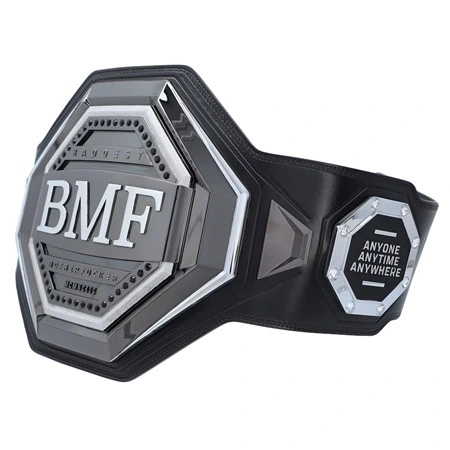Critical Thinking for Critical Outcomes
Fight IQ is a term broadly used in combat sports to denote an athlete's ability to make strategic decisions and act intelligently during a fight. It's not purely about physical strength or technical skills, but more about critical thinking, adaptability, anticipation, and strategy formulation within the heat of battle.
Having a high fight IQ often means understanding when to strike, defend, advance, or retreat based on an opponent's actions. In the complex matrix of combat sports where split-second decisions can drastically affect the outcome, fight IQ is just as valuable and indispensable as physical prowess.
Understanding Fight IQ

Fight IQ refers to a fighter's ability to make appropriate strategic decisions during a fight. It exists at the crossroad of various cognitive abilities including pattern recognition, decision-making speed, spatial awareness, and adaptability.
Pattern recognition allows fighters to anticipate their opponent's moves, based on observed habits or tendencies. Decision-making speed is crucial as fights often demand split-second decisions.
For example, choosing to counter-attack, block, or slip an oncoming strike. Spatial awareness enables fighters to navigate the combat area efficiently, maintaining an optimal distance from opponents, to avoid getting cornered or outmaneuvered.
Adaptability centers on an athlete's capability to modify their fight approach based on their opponent's tactics. High fight IQ individuals react swiftly to changing dynamics during a fight, often shifting strategies in the middle of action to maintain an advantage.
Above all, fight IQ is not a physical attribute but a mental one. Like a chess player on the board, a fighter uses their mind to plan moves ahead, consider alternatives, deploy feints or traps, and be prepared for their opponent's possible actions.
Anticipation, Adaptability, and Strategy
There are several key cognitive processes that come together to create a mental edge during combat. These essential elements—anticipation, adaptability, and strategy formulation—are crucial in mastering the art of outthinking an opponent in high-stakes environments.
Informed Anticipation
The ability to anticipate an opponent's next move is paramount in all forms of combat sports. This ability requires an acute sense of a fighter's habits, patterns, and tendencies which are usually learned through meticulous observation and analysis during (and leading up to) a fight.
Successfully predicting an opponent's moves allows a fighter to execute successful counters, capitalizing on split-second openings or opportunities that may arise. In this context, effective anticipation relies on pattern recognition, reflexes, and experience.
Mid-Fight Adaptability
Adaptability refers to a fighter's ability to adjust and modify their fighting style, strategies, and tactics to confront evolving combat scenarios. During a fight, unforeseen circumstances or unexpected actions from an opponent may require swift changes to a preconceived plan.
Athletes with high fight IQ excel at this mental shift, since they can recognize the need for change and adapt on the fly. This ability to literally and figuratively "roll with the punches" to seamlessly adjust their approach is essential to compete on the world stage.
Strategy Formulation
Fight IQ also stems from the tactical planning process, where a fighter chooses which attacks, defenses, or maneuvers they want to use to gain the upper hand. Formulating a strategy involves the fighter's ability to size up their opponent, identify strengths and weaknesses, and exploit them with precision.
During a (competition) fight, a well-thought-out strategy can mean the difference between victory and defeat. When developing an understanding of an opponent prior to a fight, a strategic fighter considers factors like pre-fight analyses, tactics their opponent has used in past fights, as well as other mental or physical strengths and weaknesses, all while successfully executing these ideas in the heat of competition.
Fight IQ goes beyond the physical and technical aspects of combat sports. With anticipation, adaptability, and strategy formulation at its core, it serves as the mental edge that separates skilled athletes from the exceptional competitors who make history.
The Role of Fight IQ in Combat Sports
Each of the fighters below illustrate the strategic and adaptability aspects that are central to a high fight IQ. If you aren't already convinced, these examples will further prove that this attribute is as vital as, if not more important, than pure physicality for climbing the rankings of combat sports.
Here are 5 examples of successful fighters known for their fight IQ:
1. Floyd Mayweather Jr.: Considered by many to be one of the greatest boxers of all time, Mayweather's ability to adapt to his opponent's styles and tactics has been a noteworthy aspect of his skillset. He consistently demonstrated a boxing intelligence that allowed him to capitalize on opponents' weaknesses and make the necessary adjustments to his own style. This ultimately led to his undefeated 50-0 record.
2. Anderson Silva: The former UFC Middleweight Champion is renowned for his creative attack strategies and outstanding defensive skills. In his prime, Silva had an uncanny ability to lure opponents into a false sense of security before unleashing devastating, fight-ending strikes.
3. Georges St. Pierre: GSP, as he is known by fans, is widely recognized for his strategic approach to fights. He consistently leveraged his mastery of multiple disciplines—strategically deciding when to go for a takedown, strike, or defensive maneuver based on his opponents' strengths and weaknesses.
4. Khabib Nurmagomedov: UFC Hall of Famer and undefeated in his MMA career, Khabib had an exceptional understanding of his opponents' game plans, predicting and countering moves, exploiting vulnerabilities, and always managing to take the fight to the ground—where he consistently dominated.
5. Israel Adesanya: His exceptional ability to read opponents, swiftly adapt to evolving fight scenarios, and use creative, unpredictable striking techniques allows Adesanya to masterfully manipulate distance, timing, and angles. This helps him to control the fight, outclass his opponents, and secure a victory.
How to Build and Improve Your Fight IQ
Building and improving fight IQ requires a combination of mental, technical, and physical training strategies. Here are some techniques and approaches that can help:
- Gain More Knowledge: Increase your understanding of your chosen combat sport. This includes learning the rules, understanding various techniques, and studying the strategies that work best in different scenarios.
- Watch (and Study) Videos: Regularly watch and analyze fights, not just for entertainment, but also to decipher the strategic elements. Watch how successful fighters react under a variety of circumstances. Observe decision-making patterns and implement or modify these strategies into your own fight game.
- Spar Regularly: This exposes you to various fighting styles and strategies, improving your adaptability. It’s also an opportunity to test new approaches and refine your decision-making process in a real-time environment.
- Play Some Chess: Since chess is a game of strategy and anticipation, can help improve decision-making capabilities. Regular play encourages mental agility and helps develop strategic thinking, both of which are directly related to fight IQ.
- Hone Your Reaction Time and Anticipation: Incorporate drills into your training regime designed to improve reflexes and observational skills. Pad work (with someone who understands how to hold pads), speed bags, and reflex-ball training are all effective.
- Psychological Training: Work with a sports psychologist or mental conditioning coach to refine your strategic decision making and cope with pressure during fights.
- Feedback and Reflection: Post-training or post-fight feedback sessions with coaches and peers can provide valuable insights. Reflect on your performance, identify decision-making flaws, and consider alternative strategies for future fights.
Like any other skill, improving always involves consistent practice and learning. As you gain experience and start to enhance your mental framework, your fight IQ will start to naturally evolve, making you a more effective fighter over time.
Insights From Professional Fighters and Coaches
Fighters and coaches who have experience in the ring, cage, or gym can offer legitimate advice and tips. Here are some helpful insights from professional fighters and coaches on the development of fight IQ:
- Greg Jackson (MMA Coach)
Greg Jackson, one of the top MMA coaches, emphasizes the importance of understanding a student's current level of Fight IQ and how to challenge them without overwhelming them. He believes that a coach should not impose his own style but rather guide the student towards finding their unique approach.
According to Jackson, an essential part of the process is letting the fighter encounter struggles, then work through them, as the experience of detecting and remedying the gaps themselves helps sharpen their mindset.
- Firas Zahabi (MMA Coach)

Firas Zahabi, another highly respected MMA coach, asserts that a vital aspect of improving fight intelligence involves regularly changing training partners or opponents. This develops a fighter's ability to quickly adapt to new situations, thus enhancing their ability to counter and react to different fighting styles.
Zahabi also stresses the necessity of continuously learning new techniques and modifying existing ones to stay sharp and be better equipped to handle evolving fight dynamics.
- Dominick Cruz (Former UFC Bantamweight Champion)
Dominick Cruz, a fighter known for having world-class fight intelligence, highlights the value of being open-minded and embracing continuous learning. Cruz credits his persistence, versatility, and heightened self-awareness as crucial factors contributing to the development and application of his fighting style.
He emphasizes studying opponents thoroughly and keeping track of their evolving patterns and habits, which, when done right, enables him to make calculated decisions during fights.
These insights demonstrate that developing this valuable mental attribute is a difficult undertaking. A personalized, adaptive coaching approach, along with varied training experiences and perpetual learning, can significantly contribute to cultivating a fighter's cognitive arsenal.
Add To Your Cognitive Arsenal
Ensuring success in the competitive world of combat sports extends far beyond maintaining physical strength and mastering technical skills. A high-level cognitive arsenal is the "secret weapon" that often distinguishes championship fighters from their less successful peers.
This often overlooked cognitive prowess serves as the silent backbone behind some of the most successful boxers and fighters. It helps direct their physical ability and technical expertise in a more calculated and effective way.
It's their mental approach to fighting that strategizes each punch thrown, guides every dodged attack, and determines the best course of action in the clinch, equipping them with a mindset that is one step ahead of their opponent. The deeper you dive into the complex world of fight psychology, the more clear this becomes.
It takes hard work to cultivate a strong sense of anticipation, adaptability, and strategic formulation and can have a profound impact on an athlete's performance. The study of fight psychology is still evolving, with quite a bit of unknown territory left to explore.
Athletes, coaches, and martial artists who continue to explore and understand fight IQ will elevate their own personal performance and contribute to a broader combat sports knowledge base. For some of us, it's clear that the journey of mastering the mental aspect of fighting is almost as appealing as watching or participating in the sport.
As we continue to decode the subtle mental maneuvers behind a block, strike, or submission, we are reminded of the quote, "Your mind is the ultimate weapon".













